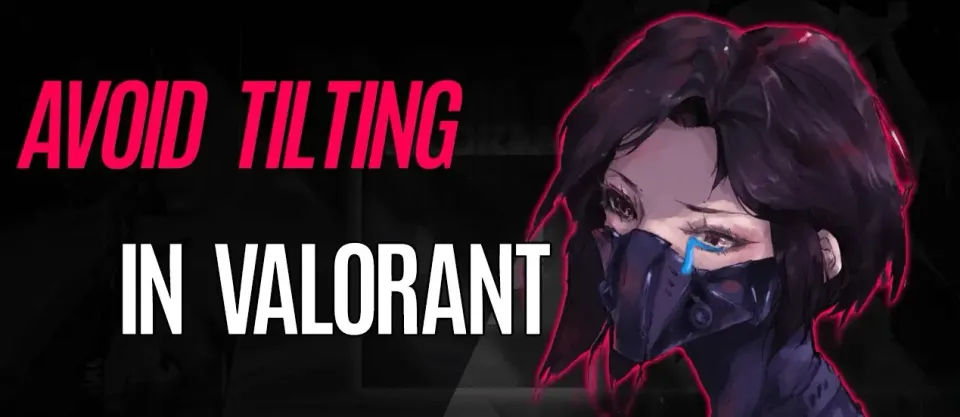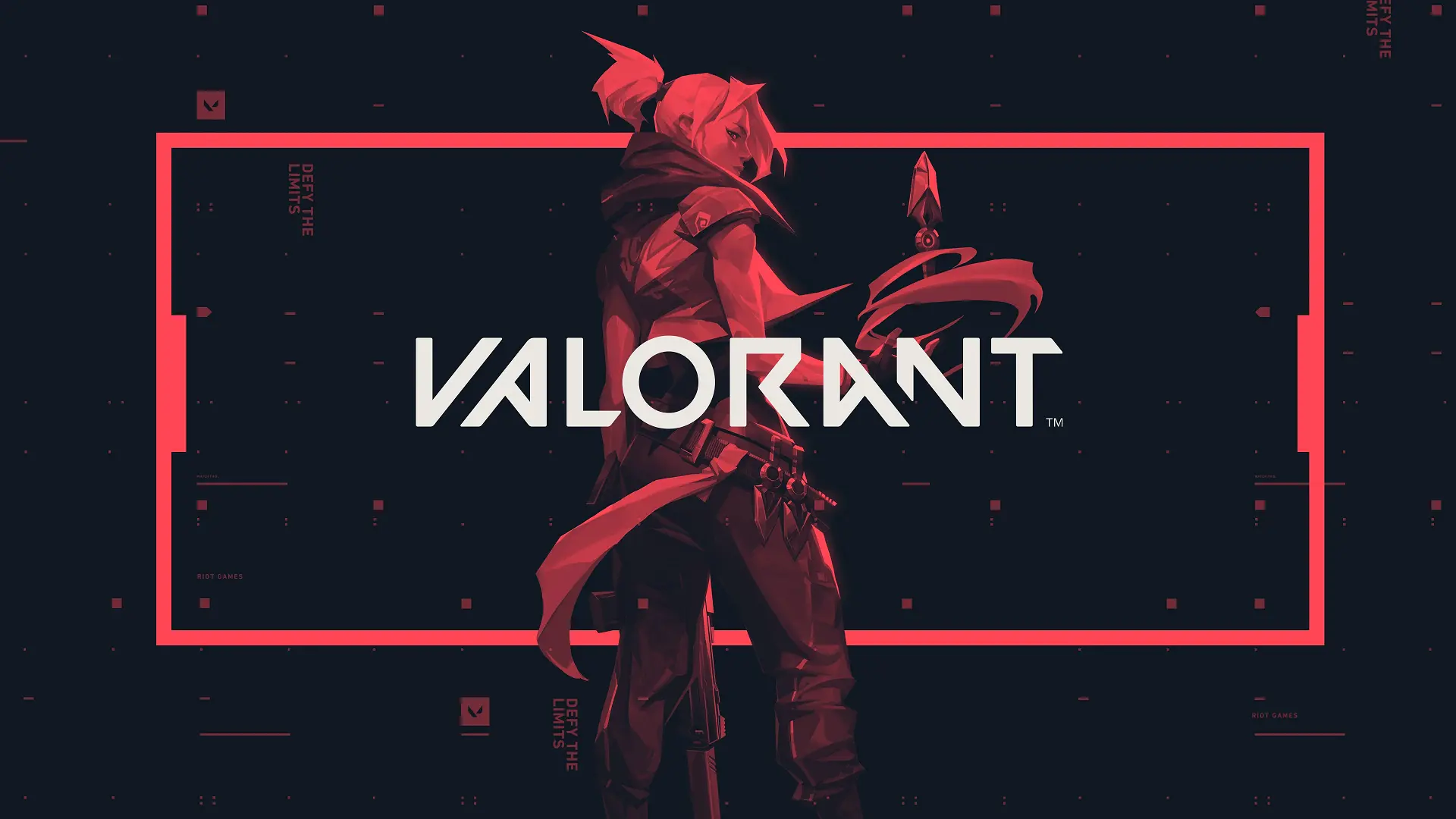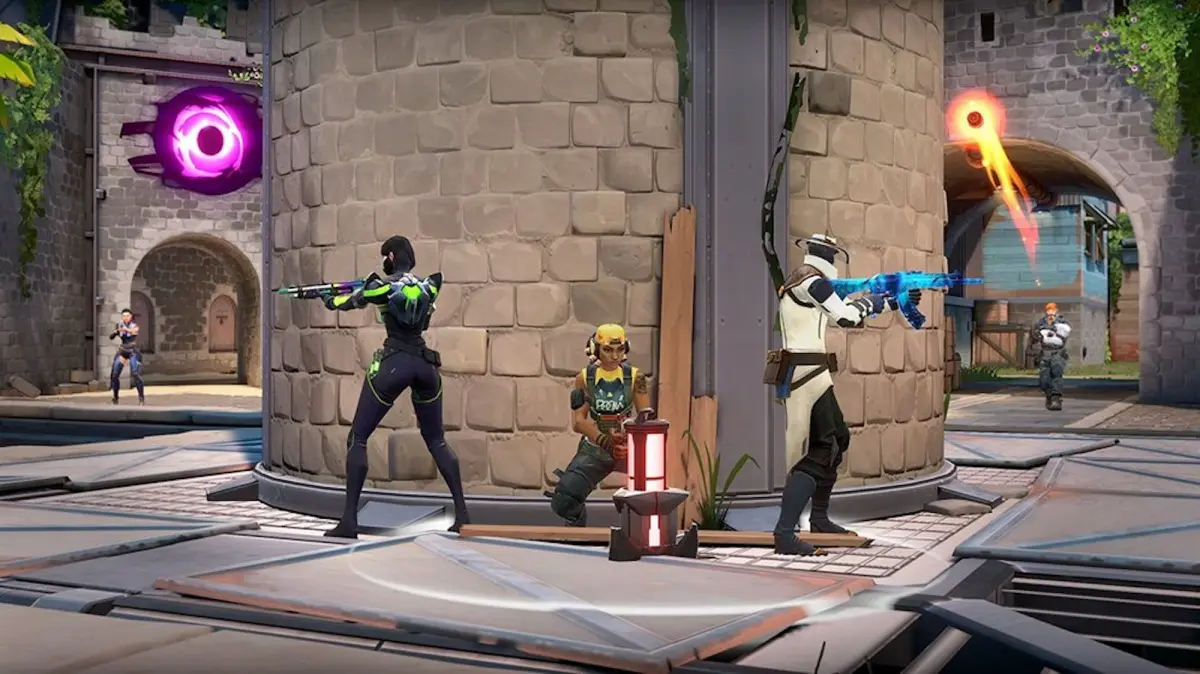Article
11:11, 06.02.2024

In the world of team games, especially in the tactical shooter Valorant, a player's success largely depends on their emotional state and the ability to control it. It is important to remain calm and not succumb to provocations, as concentration, accuracy, and correct actions determine the outcome of the battle. One of the main challenges for a player is tilt or an emotional outburst, which can arise from various circumstances in the game. Intending to provide useful advice on tilt management in Valorant and avoid its occurrence, we have prepared this article.
What is Tilt

Tilt is an emotional disorder that occurs under the influence of stressful situations in the game and beyond. It should be considered an integral part of the gaming experience. It's important to understand that this can happen to any player, regardless of their experience and ability to effectively manage emotions in Valorant. We all know how players can be unpleasant and provoke emotions in games, especially in the shooter Valorant. Consider tilt as an opportunity to improve your skills as a player and a person, and don't let emotions take over.
It's also important to understand that tilt is a temporary state that can be managed. Instead of sinking into despair and worsening your situation, use it to improve your self-control skills and reaction to stress.
Use the tips on managing tilt in Valorant that you can find in our article to control your emotions and enhance your skills, even in difficult situations.
Causes of Tilt in Valorant

For a more detailed study of one of the players' main problems and its successful resolution, it's important to consider the most common causes of this emotional state thoroughly. Understanding these factors will help you better control your emotions and acquire one of the main skills - overcoming tilt in Valorant, which will not only improve your emotional position but also help you perform better in battles, as avoiding this state allows you to show better gaming results.
- Losses. Often defeats and lost important rounds can cause a feeling of tilt, so try to focus your attention on future matches/rounds, avoiding mistakes made in the past and remember that defeats are an inherent part of the game.
- Ineffective communication. Problems interacting with team partners can lead to misunderstandings, bursts of anger, or even verbal conflicts. Management anger in Valorant will come in handy, as aggression rarely leads to positive results. Try to calm your team or, in extreme cases, turn off voice chat and focus on your game to avoid the influence of negative emotions and avoid tilt.
- Low level of gaming experience. In some situations, players may find themselves in this state after several unsuccessful rounds or a match against opponents who turn out to be at a higher level. Instead of blaming opponents for "smurfing," a more sensible decision would be to focus on improving your own gaming and general skills, an important aspect of overcoming Valorant game frustration. Pay more attention to improving your game to more effectively deal with challenges that may arise from playing against stronger opponents.
- Unfavorable real-life circumstances for gaming. External influences such as fatigue, personal problems, or stress can affect your emotional state. It is important to be attentive to these factors and, possibly, rest before playing, or stop playing to not worsen the situation and burn out from the game.
For successful emotional control in Valorant, it's important to understand the causes of tilt. Analyze situations, pay attention to personal development, and approach the game positively to not spoil the enjoyment for yourself and other players during the match.

Tips for Managing Tilt in Valorant

Rest
The simplest way to handle stress in Valorant is to take a break from the game for a while. Depending on your state and circumstances, the duration of this rest can vary. For some, a few hours may be enough, while others may need a few days to psychologically recover and return to the game. Also, as a preventive measure, it is recommended to take short breaks between matches to reduce the likelihood of experiencing tilt.
Change of Approach
If you feel that the situation remains unchanged, try to avoid game tilting in Valorant by changing your approach to the game. Experiment with changing your play style or choosing a different agent. A new strategy could be the key to success, engaging you to the extent that you forget about previous negative experiences in the game and weak teammates. Sometimes, stepping away from the usual and trying something new can reveal unexpected opportunities.
Changing your play style can involve abandoning traditional routes or attacks, choosing unexpected positions, or even taking on the role of a leader in the team. This approach not only helps to resolve emotional issues but also provides a new perspective on the game.
Team Communication
Effective communication during the game is not only a means to achieve successful results in a match, but also a great way to avoid tilt in Valorant. With proper communication and support, there will be no time or space for negative thoughts that could worsen your emotional state. Monitor the mood in the team, communicate with them, and avoid any arguments. In this case, you can enjoy the match and not experience tilt, even if you lose.
Situation Analysis

Another effective method of overcoming tilt is analysis, specifically evaluating your actions during the game. Instead of succumbing to negative emotions after a failure, it is important to timely shift your attention to analyzing the situation, which will help you control tilt in Valorant. Every unsuccessful round in Valorant is an opportunity for reflection and improvement. Try to thoroughly analyze your actions and whether you adhered to the right strategy.
Assess your own mistakes during the game and work on them to avoid repeating them in future matches. Reducing the number of mistakes will contribute to improving your emotional state.
Do not play Valorant while worrying about your results, as excessive anxiety can affect your gaming performance and cause severe stress. Therefore, follow our tips to avoid worsening mental health, which will ultimately give you even more pleasure from the game.
The Impact of Tilt on Performance in Valorant

Tilt significantly affects players in Valorant, as can be observed in players during a match who are in such a state. It manifests as decreased productivity, and rash and ill-considered actions, leading to defeat and further complicating the situation, deepening players into a state that is hard to escape. Therefore, to recover from tilt in Valorant, take a break from the game and follow the recommendations provided above.
Using recommendations and strategies for managing tilt is not only an effective way to maintain emotional stability but also a path to improving performance. Applying mental strategies in Valorant, such as rest, analysis, and positive communication, helps overcome tilt and raise your level of play. Remember, a successful player is not only one who possesses technical skills but also one who can control their emotions and apply psychological strategies to achieve high results in games.
Comments
Upcoming Top Matches



No comments yet! Be the first one to react